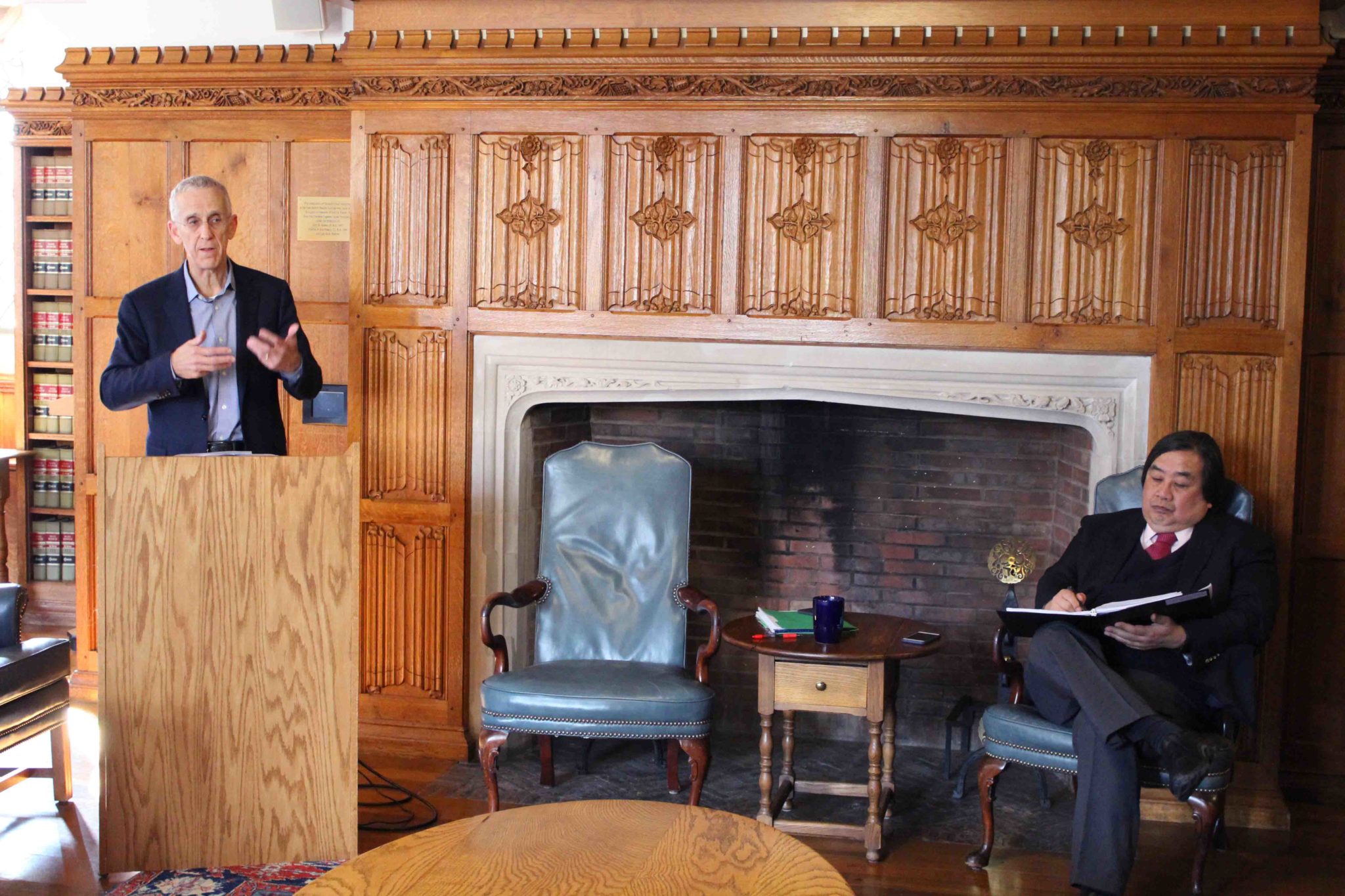
In April 2016, nearly 200 countries came together to sign the Paris climate accord, an unprecedented environmental agreement that seeks to mitigate the long-term effects of climate change around the world. Since then, President Donald Trump has reneged on American support for the agreement, causing many observers to fear for its future.
On Tuesday, the Yale School of Forestry and Environmental Studies, the Yale Law School Center on Global Legal Challenges and the Yale Law School Rule of Law Clinic co-hosted environmental negotiator Todd Stern — who helped pull together the Paris accord as the first special envoy for climate change in the State Department, from 2009 to 2016 — for a conversation about his work and the Paris Agreement.
“The Paris Agreement was a beginning, not an end,” Stern said at the event. “The trick now is to transform the Paris agreement into the Paris regime.”
Around two dozen students and community members attended the event, which took place in the Law School. The talk was moderated by international law professor and former Law School dean Harold Koh, who served as legal advisor to the secretary of state under President Barack Obama.
After a brief introduction in which Koh praised Stern’s work on climate, saying he created the “blueprint” for modern climate policy, Stern opened the talk by addressing the current state of the Paris Agreement.
Describing the agreement as a landmark accord that resonated powerfully around the world, Stern said that while its goals — such as achieving net zero global carbon emissions by 2050 — may seem dramatic, scientific research suggests these aims are, in fact, necessary to protect the planet.
Stern’s remarks were followed by a Q&A session, in which Koh and audience members posed questions on subjects ranging from the status of Russia in climate negotiations to former New York City Mayor Michael Bloomberg’s appointment as the U.N. special envoy for climate action.
Discussing the federal government’s current approach to climate policy, Stern said Trump’s decision to withdraw from the agreement makes it more difficult to achieve global emission goals. Still, he emphasized that other nations, as well as subnational groups such as nongovernmental organizations, are continuing the work.
“[French President Emmanuel] Macron?” Stern said. “The last I checked he’s the leader of the free world right now.”
He went on to discuss the important work being done by other entities, including American allies, international organizations, businesses, nongovernmental organizations and American states and localities.
Koh echoed this sentiment, saying that no single organization or government is solely responsible for tackling climate change.
“The Paris climate deal was a landmark moment and the advancement to the next stage would be easier if we had an administration that was supporting of its goal,” Koh told the News. “[But] Donald Trump doesn’t own the climate; it’s something that belongs to all of us.”
During the talk, Stern noted the importance of reassessing goals periodically in order to react to climate developments. He also stressed the need for policy transparency among nations. In the absence of transparency, he said, some might suspect that nations such as Russia are not pulling their weight in the fight against climate change.
After the event, Cynthia Parker, a New Haven community member who said she frequently attends climate talks at Yale, said she enjoyed hearing from Stern and was not surprised by the way he characterized climate issues.
“It pretty well fulfills one’s less happy expectations,” she said. “I think his focus on the more far future rather than the more near future is appropriate.”
Niki Anderson | niki.anderson@yale.edu







